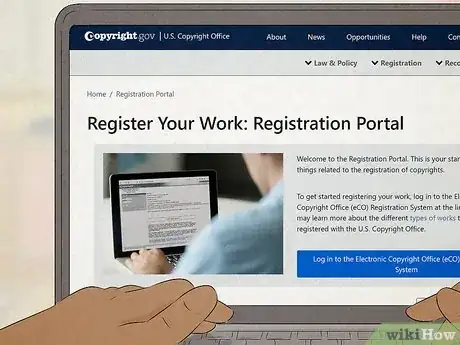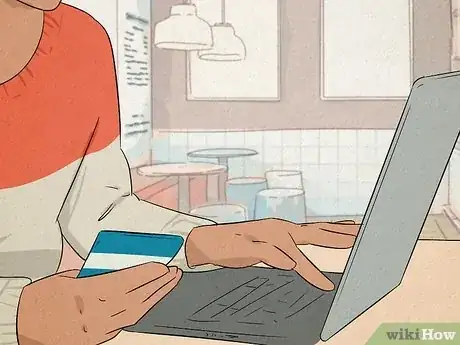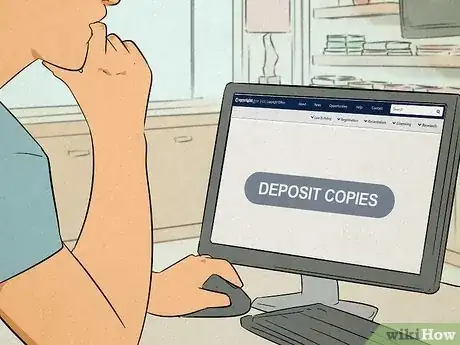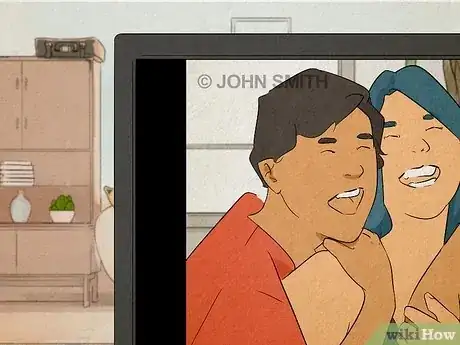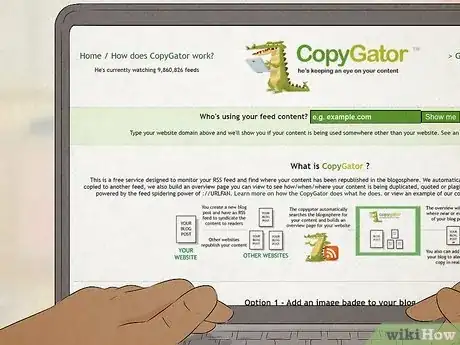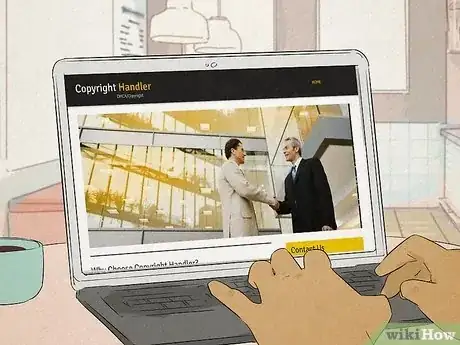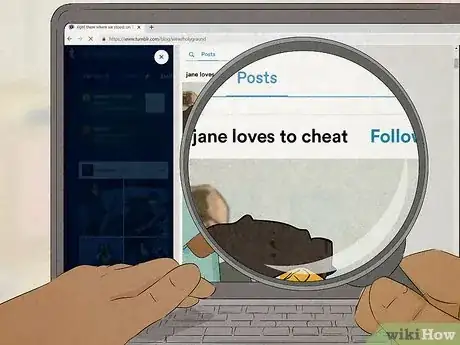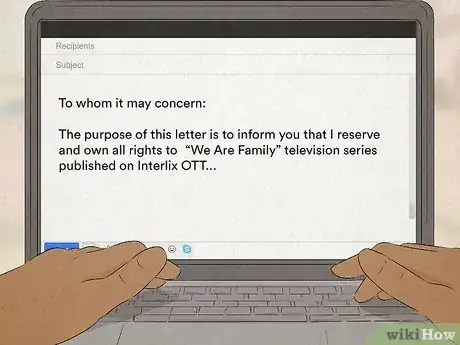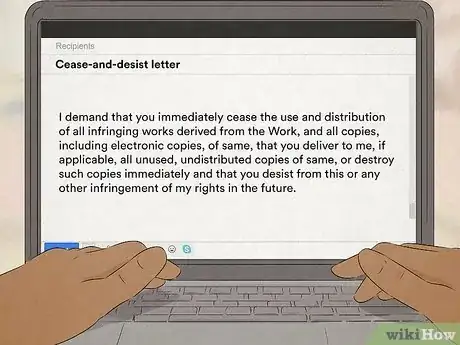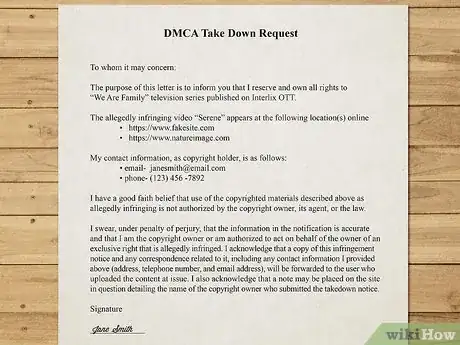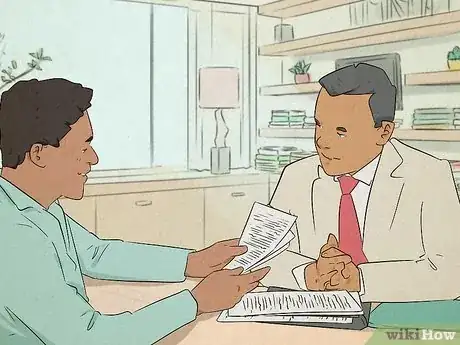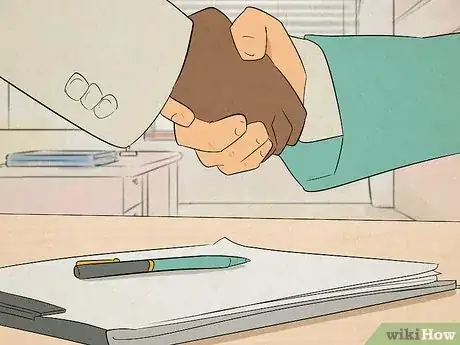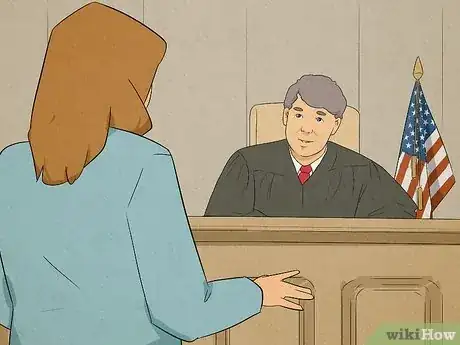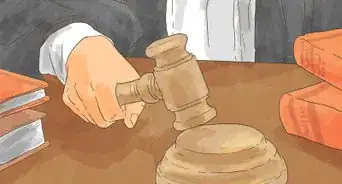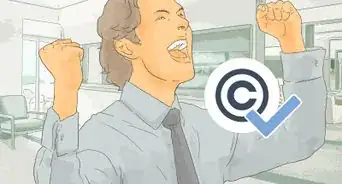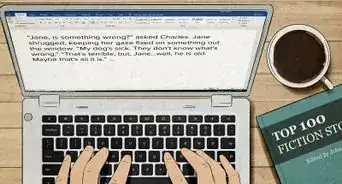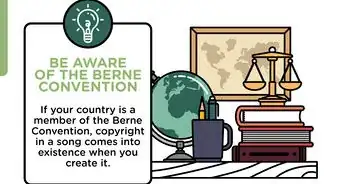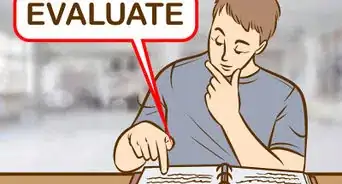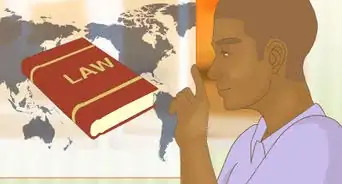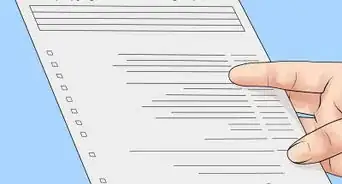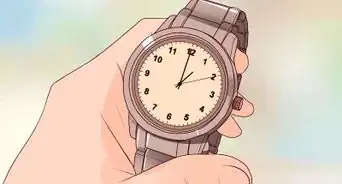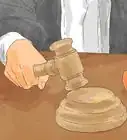This article was written by Jennifer Mueller, JD. Jennifer Mueller is an in-house legal expert at wikiHow. Jennifer reviews, fact-checks, and evaluates wikiHow's legal content to ensure thoroughness and accuracy. She received her JD from Indiana University Maurer School of Law in 2006.
There are 10 references cited in this article, which can be found at the bottom of the page.
This article has been viewed 68,121 times.
If you've made a movie or a television show independently, you acquired a copyright in your original creative work the moment you produced it in a tangible form. That copyright gives you the exclusive rights to, among other things, copy, sell, and distribute your work, or to license other people to do those things for you. [1] Having a copyright is important, but protecting that copyright is another matter entirely. Here are some ideas to help you through the copyright process in the United States.
Steps
Registering Your Copyright
-
1Confirm that you are the rightful owner of the copyright. Generally you have the right to claim a copyright in your work if you created it -- unless it was a work-for-hire. If you were paid to create something for someone else, you can't claim the copyright. [2]
- If you created your movie or TV show independently, you have a copyright in it. If you accepted funding from someone else or allowed someone else to produce your work, your production contract should state who owns the copyright in the work.
-
2Complete an application for copyright registration. Although you don't have to register your copyright to enjoy your exclusive rights, you do have to register it if you want to file an infringement suit in federal court. [3]
- Having a registered copyright is a strong deterrent for those who would copy your work without permission.
- You can find an application at the U.S. Copyright Office's website. You can either fill it out online or print and mail it.[4] If you register online, you'll pay a lower registration fee and can check the status of your application at any time. [5]
Advertisement -
3Pay the registration fee. The U.S. Copyright Office won't process your application until you've paid the required fees to register your copyright.
- If you register copyright in a single work online and you are the sole claimant, you'll pay just $35. If you're registering copyright in a television show, however, you may need to use serial registration for each episode of the show. Your registration fee would be $55. [6] You can use a credit or debit card to pay registration fees online. [7]
- If you send a paper application by mail, you'll need to include a check or money order for $85. [8]
-
4Include deposit copies. A complete application for copyright registration must include a full copy of your work to be deposited with the Library of Congress. [9]
- If you're filing online, you can submit a copy of your video using any of the accepted file types: .avi, .mov, .mpg, and .wmv. [10]
- If you're mailing a printed copy of your application, you can submit with it a digital copy of your movie or television show on disk, or you can submit a tape or film. In addition to the single complete copy of your video, you must include a separate written description of its contents such as a press release or a synopsis. [11]
Monitoring the Usage of Your Work
-
1Understand your responsibilities as a copyright holder. Even if you've registered your copyright, you remain responsible for making sure your rights are not being infringed. This means that if someone is using your work without your permission and in violation of one of your exclusive rights, it's up to you to make them stop. [12]
- Because things can be copied and distributed on the Internet with relative ease, you must keep a close eye on how your content is being used by others on the Internet – especially if you've posted it on a video-streaming site or have made it available for digital download.
-
2Include copyright notices on all your work. Much like having a car alarm sticker on the window of your car to keep thieves away, so, too, will a copyright notice make intellectual-property thieves think twice about copying your work.
- Notice is no longer required to maintain copyright protection[13] , but a strongly worded notice may have a deterrent effect.
- If you have your own website, download a badge or icon from a duplicate-content-checking site to warn visitors about stealing from you. [14]
- Install code that disables right-clicks on your blog or corrupts the content if it is copied so that it can no longer be played.
-
3Use tools that monitor the Internet and detect duplicate content. A number of free tools and services online can work together to find websites where your work is being copied.
- Run a search for your movie or TV show on all major search engines, and set an alert so you'll get an email when new work appears online that matches those searches. This can save you a lot of time and effort. [15]
- Add a free service such as Copygator to scan for content on the Internet that duplicates content on your blog. [16] Be forewarned, however, that this service might turn up a lot of false positives and not be worth the effort if you have a blog on a platform, such as Tumblr or WordPress, that allows other users to reblog your work with full attribution attached.
-
4Consider subscribing to an infringement-tracking service. If you've put a lot of time and money into your creations, you might consider subscribing to a service such as Copyrighthandler.com that will track your work online and automatically send customized settlement-demand letters to infringers.
Negotiating with Infringers
-
1Investigate the identity of the infringer. If you find someone using your work without your permission, take some time to find out who they are before you attempt to contact them.
- For example, if the user turns out to be a child, it may not be worth the time or effort to engage them.
- Check the website's Whois information to find out who has registered the domain. Then find out the infringer's Internet service provider and who is hosting the infringer's website. [17]
-
2Offer to license the work. Once you've identified the owner of the website using your work without permission, send them a letter introducing yourself, and offer to give them permission.
- Be courteous and professional. Don't even mention copyright infringement. Simply say that you noted they'd posted your work online, that you were flattered they enjoyed it, and state what you would like in exchange. Perhaps you're only interested in being attributed as the author, or you'd like for them to link to your site.
- Another popular, non-licensing-permission option is to have them provide a retail link so the site's visitors can legitimately purchase your work. If the website gets a lot of traffic, this could result in sales for you that outweigh any money you would have gotten from a license.
- If you do want to offer a strict license for the work, explain your rates and the options available, and give them the opportunity to get back to you.
- Give them a deadline to respond, but don't threaten them.
-
3Send a cease-and-desist letter. If your deadline passes, you haven't heard from the infringer, and your content has not been removed, take things a step further by sending them a formal cease-and-desist letter.
- Check their site again before you send the letter. Sometimes a website owner becomes frightened or embarrassed by a letter such as the first one you sent, even if you wrote it in a polite and friendly tone. In such a case s/he may simply remove your content from the site without saying anything.
- Check the site thoroughly. The owner may have moved it to a new address, or s/he may have back-dated it in an attempt to placate you.
- Consider having an intellectual-property attorney draft your cease-and-desist letter. Since you are accusing them of violating your rights, and you're threatening legal action if the matter is not resolved, you want to make sure you have the wording correct.
-
4Take advantage of the DMCA takedown provisions. The Digital Millennium Copyright Act requires web hosts to employ a DMCA agent and take down content they host that infringes someone's copyright. Fulfilling this requirement allows web hosts to claim they are exempt from liability for the infringement. [18]
- If the website is a blog or other page hosted by a blogging service such as WordPress or Tumblr, you may find on it a form to fill out notifying the agent that someone is violating your rights. On the infringer's website, there should be links for "legal" or "copyright" at the top or bottom of the page.
- You can use this option only if you posted the work online before the infringer did. Otherwise you can't prove that they copied it from you and not the other way around.
- Include a copy of your letters to the infringer, or offer to provide them on request, as some blogging services want you to attempt to contact the blog owner on your own at least once before you resort to filing a DMCA takedown request.
- Once you submit the form, the host will review your claim and remove the post if they find in your favor, usually within 24 hours. [19]
Filing Lawsuits for Infringement
-
1Consult a copyright attorney. If all other efforts to protect your copyright have failed, and you wish to file an infringement suit, it is in your best interest to talk to an attorney.
- Copyright law is tremendously complex, and federal court procedures can be difficult to navigate. If you file an infringement lawsuit on your own, you'll be expected to know the applicable law and court rules just as well as an attorney does.
-
2Discuss the costs of an infringement lawsuit with your attorney. Costs include more than attorney's fees and profits you lost as a result of the infringement.
- Intellectual-property attorneys don't usually take a contingency-fee arrangement, and your attorney alone will cost you several hundred dollars an hour, not including filing fees.
- Keep in mind that litigating a copyright-infringement suit can take years. If you don't stand to win very much in monetary damages, you may not want to have the matter hanging over your head and causing you stress for that long.
-
3Consider mediation. Many lawsuits are settled before they go to trial. It may be worth your time and money to hire a mediator and attempt to resolve the dispute that way.
- A mediator is a professional, neutral third party who brings you and the infringer together and facilitates communication so you can come to an agreeable resolution.
- Mediation can be valuable in copyright cases, because the law may be relatively ambiguous, and the odds of any significant recovery may be low. [20]
-
4File a complaint in federal court. If you remain committed to using an infringement suit to protect the copyright in your TV show or movie, you must file a complaint in the appropriate federal district court along with a $400 filing fee to open a civil action. [21]
- Some courts require you to file a form with the U.S. Copyright Office to provide notice of the filing of an infringement suit. In others the clerk of courts will fill out this form and file it for you.
- If nothing else, the infringer may be more willing to settle when s/he is served with a federal complaint.
References
- ↑ http://copyright.gov/circs/circ01.pdf
- ↑ http://copyright.gov/circs/circ01.pdf
- ↑ http://copyright.gov/circs/circ01.pdf
- ↑ http://copyright.gov/circs/circ01.pdf
- ↑ http://copyright.gov/eco/
- ↑ http://www.copyright.gov/circs/circ04.pdf
- ↑ http://copyright.gov/eco/
- ↑ http://www.copyright.gov/circs/circ04.pdf
- ↑ http://copyright.gov/circs/circ01.pdf
- ↑ http://copyright.gov/eco/help-file-types.html
- ↑ http://copyright.gov/circs/circ01.pdf
- ↑ http://www.ipwatchdog.com/2013/06/05/how-to-protect-the-copyright-of-my-web-content/id=40655/
- ↑ http://copyright.gov/circs/circ01.pdf
- ↑ http://www.ipwatchdog.com/2013/06/05/how-to-protect-the-copyright-of-my-web-content/id=40655/
- ↑ http://www.ipwatchdog.com/2013/06/05/how-to-protect-the-copyright-of-my-web-content/id=40655/
- ↑ http://www.ipwatchdog.com/2013/06/05/how-to-protect-the-copyright-of-my-web-content/id=40655/
- ↑ http://www.marketingdock.com/copyrights/dealing-with-copyright-infringement.php
- ↑ http://www.copyright.gov/legislation/dmca.pdf
- ↑ http://automattic.com/dmca-notice/
- ↑ http://www.mediate.com/articles/anways.cfm
- ↑ https://www.flsd.uscourts.gov/?page_id=2396

